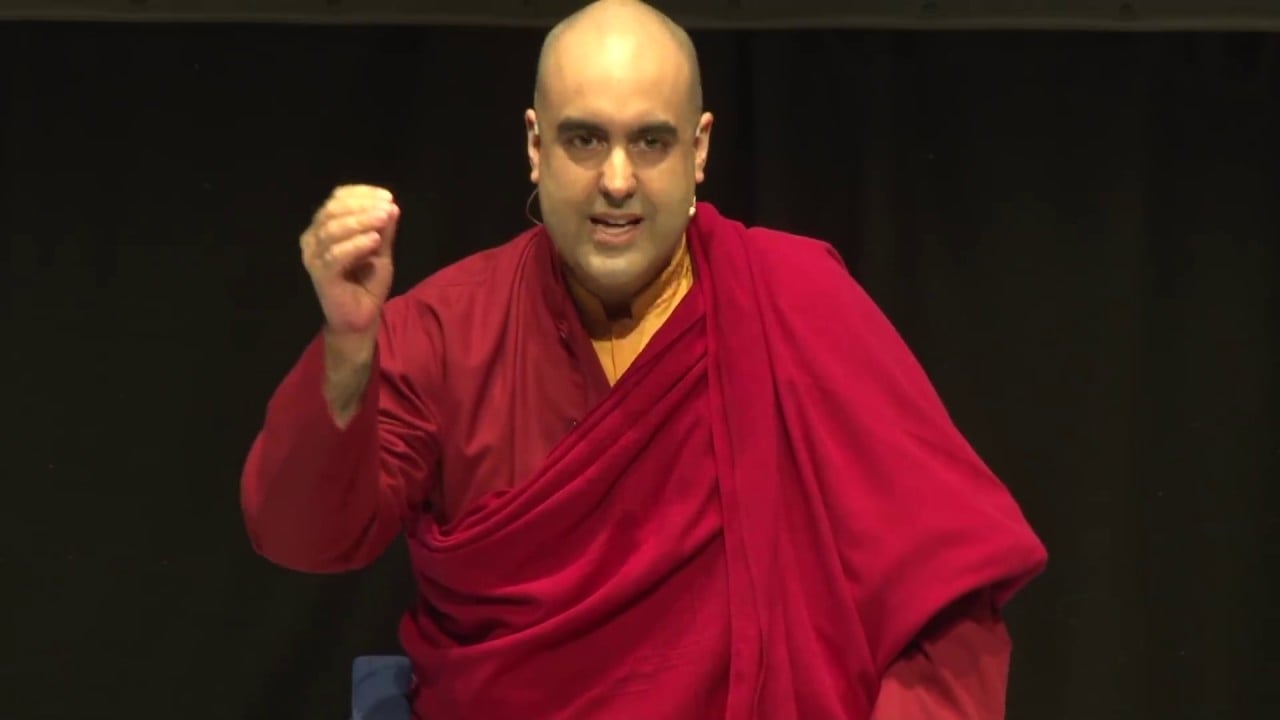- cross-posted to:
- meditation@lemmy.world
- buddhism@lemmy.world
- cross-posted to:
- meditation@lemmy.world
- buddhism@lemmy.world
cross-posted from: https://lemm.ee/post/3024344
This is a video I watched a while ago, but I remember enjoying it so thought I’d share it.


All sounds good. But I cannot understand how one can observe their thoughts from outside. we are our thoughts and observing is thinking as well. I also struggle to follow the jump from focusing on y breath to be aware and mindfulness :(
With respect, you are not your thoughts. Observing the present moment is not thinking. These are things you learn through a long-term and dedicated meditation practice. Keep practicing! 😊🙏🏻
Probably. My concern is that I cannot understand what exactly “observing” practically means, especially observing own thoughts. Thinking about these thought? What exactly process it is and how one can do it. Concentrate on breathing? No problem, but this means things about it, at least according to my understand of “thinking”.
Can you share any practical recomendatuons?
I’ve usually heard observing described as simply not following your thoughts, and letting them pass, possibly even “labeling” them. Not getting caught up in following them. When I meditate, I’m constantly becoming aware that I’m lost in thought, over and over again. So when I realize I’m thinking/lost in thought, I just observe that I was thinking and then go back to the breath. Don’t judge yourself for getting lost (that’s just more thinking), just go back to the breath. Hope this is somewhat helpful!
Thanks. This sounds like “proactively” thinking about thoughs which “chaotically/automatically” come in your mind and forcing yourself to stop diving in them. Labeling them is a thinking process as well (find a proper label is thinking)
I’m absolutely fine with this process, and this is more or less what I try to do myself.
What I can not get is the language and terms which are used in this context.
“The mind commands the body and it obeys. The mind orders itself and meets resistance.”
Practically, I would recommend learning about chakras and meditating on them moving from the bottom up over the course of a 5–10 minute meditation and build from there.
Are you your thoughts? Are your thoughts something you purposely do? Or something that happens to you? For myself it seems like a bit of both.
At times it seems like I am my thoughts, but it seems letting go of them and practicing meditation/mindfulness is one way to stop identifying so much with the thoughts. But on the other hand my meditation practice has been pretty nonexistent for several years, so I’m maybe not the best person to ask, haha.
Yet in the past when I had a steady meditation practice I have gotten to a point where I did, at least somewhat, feel more like my thoughts were just a process that was happening to me. But also, the “observing them from outside” part isn’t easy, and I feel, shouldn’t be a goal, its more of a “side effect” of the practice. But, again, I am far from an expert, and I’d love to hear anyone else’s thoughts on the matter.
A non existent practice creates non existent results. Same with most things.
The observing from outside. The duality is the first realisation. We are not our thoughts. Our thought are us. They create the sense of self.
The thoughts come from a variety of directions or arisings. The function of meditation is to initially slow this continual barrage of undisciplined mind and senses. To be aware of the nature of this very real situation and how it controls us, not the other way around.